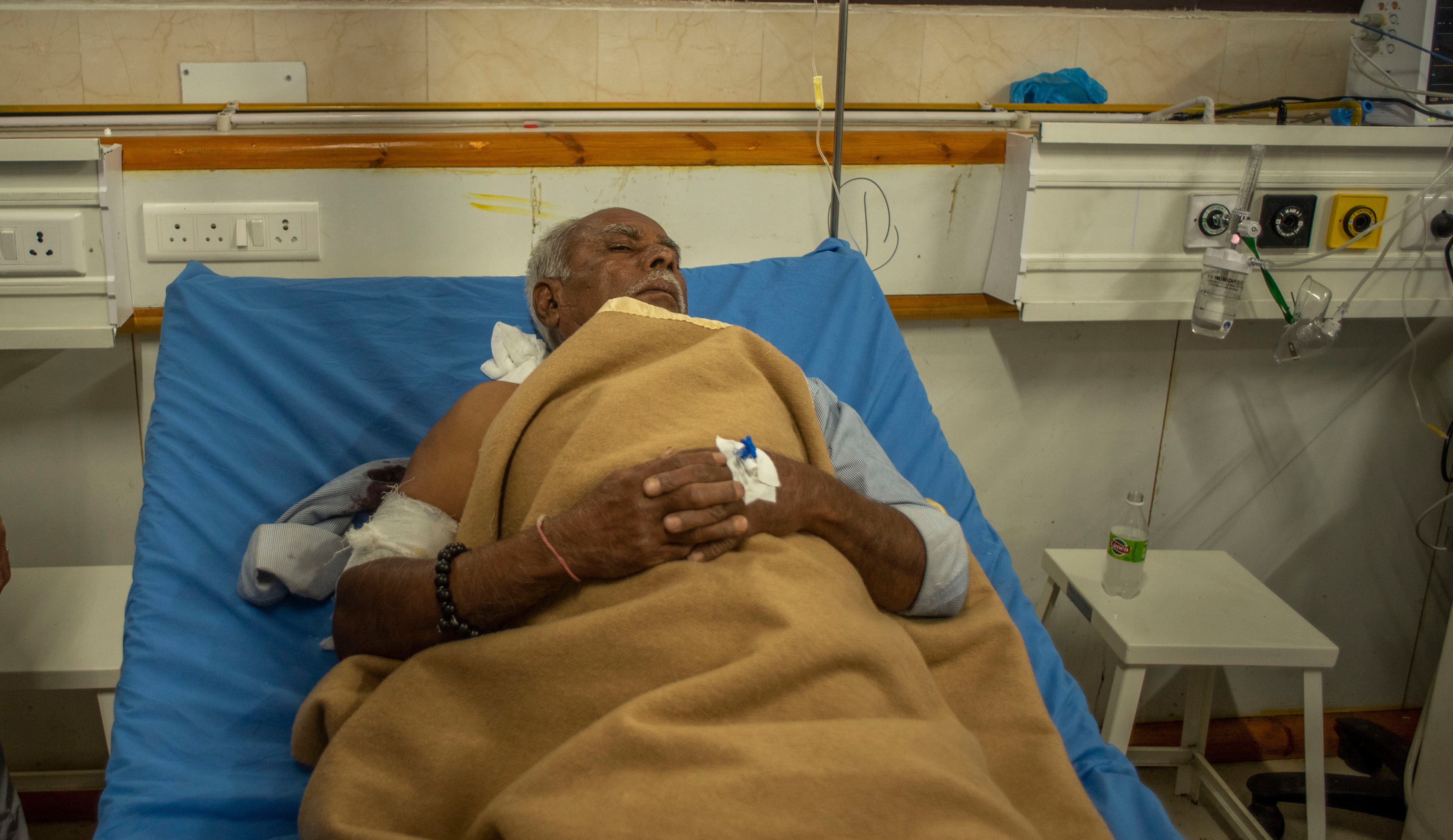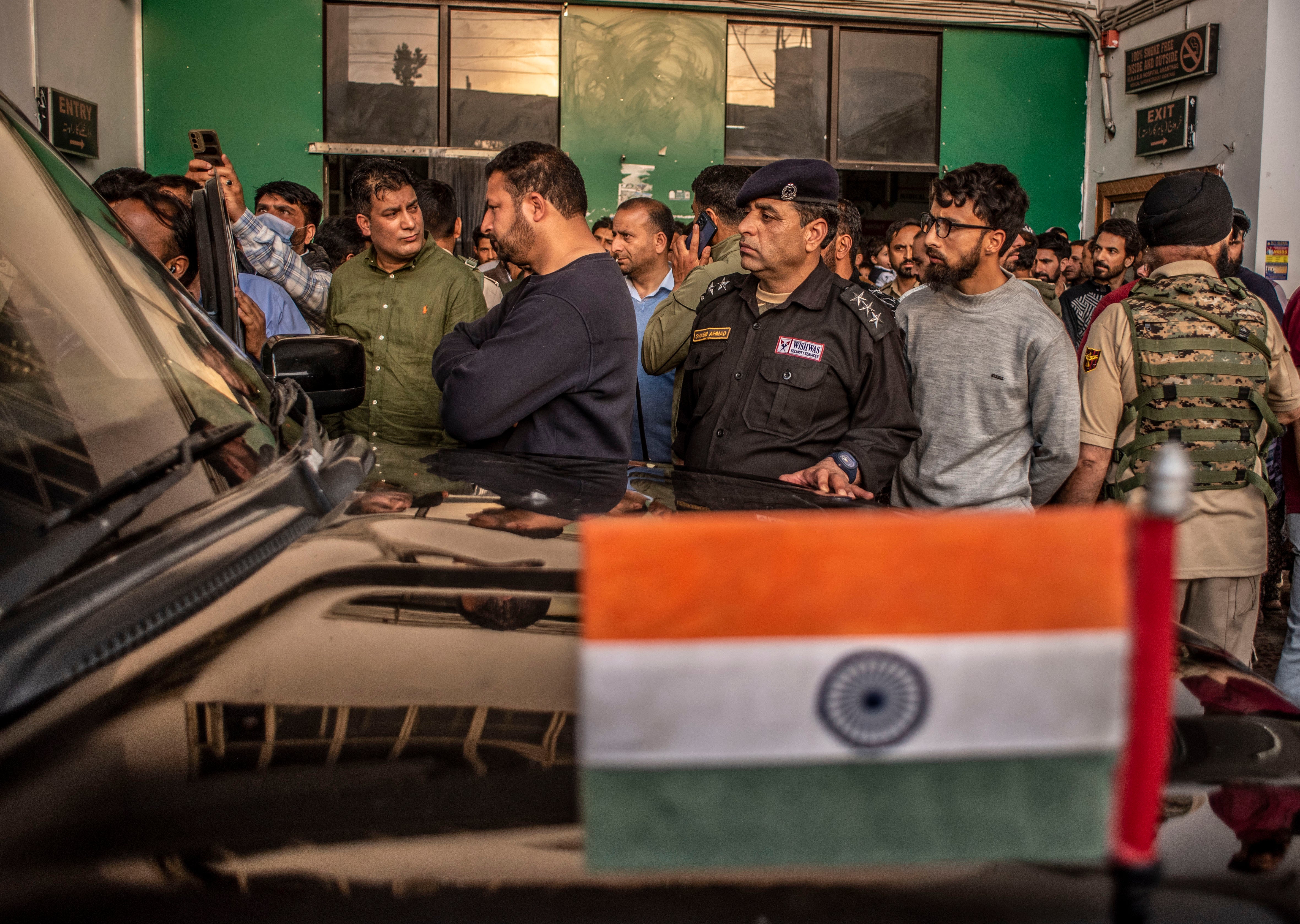A volley of gunfire broke the calm of the picturesque Pahalgam valley in Kashmir on Tuesday, killing at least 26 tourists in the deadliest attack on civilians in decades in the restive Himalayan region of India.
The attack began at around 2.30pm in Baisaran, a small valley dubbed “mini Switzerland” for its snow-capped peaks and lush meadows accessible only by foot or on horseback.
Thousands of both domestic and international tourists – many looking to escape the Indian summer heat – arrive in Pahalgam in southern Kashmir on any given spring day to enjoy the meadows ringed by dense pine forests. So it was on Tuesday, until gunshots echoed in the valley and sent panicked visitors running for their lives.
Witnesses say between four and six gunmen in military-style outfits emerged from the nearby forest and unleashed a barrage of gunfire from close range in an attack that lasted 15 to 20 minutes.
As the shots rang out many tourists ran for cover, but there was scarcely anywhere to hide in the open meadow where over 1,200 people were reportedly present at the time.

A survivor said it felt “like an eternity” as the attackers moved across the meadow, firing indiscriminately. “They were there at least for 20 minutes, undeterred, moving around and opening fire,” the tourist was quoted as telling police by The Indian Express.
A local tourist pony service operator told AFP news agency that the gunmen “very clearly spared women and kept shooting at men”.
“Sometimes a single shot and sometimes many bullets,” the eyewitness, who did not give his name, said. “It was like a storm.”
Another pony handler told local media they heard “what sounded like firecrackers” and then “people started screaming and dropping”.

Graphic and emotional videos shared from the scene showed the dead and injured lying in pools of blood as their relatives screamed in shock. Some women were seen pleading for help from local shopkeepers, who tried to calm them.
Some of the wounded were taken to hospital on horseback by local people, before military helicopters arrived to evacuate the survivors.
A young woman travelling with her husband said they were having snacks when a gunman came and shot him after asking if he was Muslim. She said the gunman opened fire when he said he was not.

“We were eating bhelpuri, and my husband was standing by my side. A person came and shot my husband,” she narrated in Hindi in a video on social media. A widely circulated photo showed her sitting in apparent shock beside her husband’s dead body.
The military and Kashmir police responded to the attack by launching a major counterterror operation, though as of Wednesday afternoon there were no confirmed reports that any of the gunmen had been apprehended. The military heightened security across the region as Pahalgam’s bustling resorts and hotels emptied out.
In the wake of the attack, the security forces immediately faced questions about the lack of adequate deployment around the tourist hotspot.

New Delhi has rolled out highly publicised measures in recent years to boost tourism and economic activity in Kashmir, part of an effort to project an image of stability in the restive region since Narendra Modi’s Hindu nationalist government revoked the majority Muslim region’s autonomy in 2019 and began administering it directly.
According to government data, Kashmir received 22 million tourists in 2023 compared to nearly 17 million in 2018.

The attack prompted top Indian officials, including home minister Amit Shah, to rush to Srinagar, the regional capital, while Mr Modi cut short a trip to Saudi Arabia.
The prime minister condemned the “terror attack” and said that “those behind this heinous act will be brought to justice”.
“We will come down heavily on the perpetrators with the harshest consequences,” Mr Shah posted on social media after arriving in Srinagar and convening an urgent security meeting.
“This attack is much larger than anything we have seen directed at civilians in recent years,” Omar Abdullah, Kashmir’s top elected official, said on social media.
As many as 24 bodies were collected in the aftermath of the attack and two people died on the way to hospital. At least 17 people were injured.

UN secretary general Antonio Guterres condemned the attack and stressed that “attacks against civilians are unacceptable under any circumstances”.
US vice president JD Vance, currently visiting India, called it a “devastating terrorist attack”, while president Donald Trump said Washington “stands strong with India against terrorism”.
Several other world leaders, including Russian president Vladimir Putin and Italian prime minister Giorgia Meloni, also condemned the attack.
According to Indian news reports sourced from anonymous government officials, the attack was claimed by the Resistance Front, a shadow group of Pakistan-based Lashkar-e-Taiba.

An armed insurgency against Indian rule in Kashmir has killed hundreds of thousands of people since 1989 and gunfights between security forces and rebel groups are not uncommon. However, Indian and foreign tourists flocking to Kashmir in huge numbers for its Himalayan foothills and exquisitely decorated houseboats have rarely been targeted.
India has long accused Pakistan of supporting separatist violence in the region on its borders and the two nuclear-armed neighbours have fought three wars over Kashmir, a region they both claim in full but control in part.
Indian opposition leader Rahul Gandhi, while condemning the attack, said the Modi government must take accountability instead of making “hollow claims on the situation being normal” in the region.



